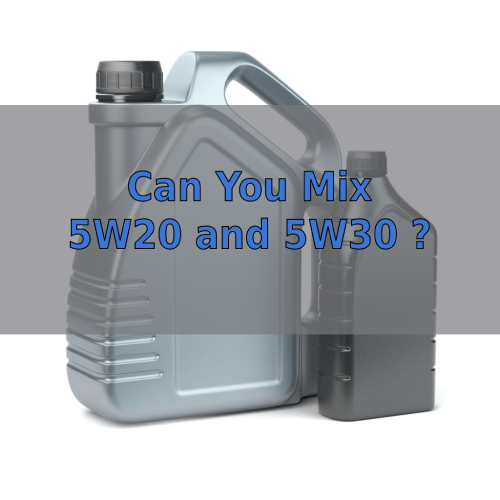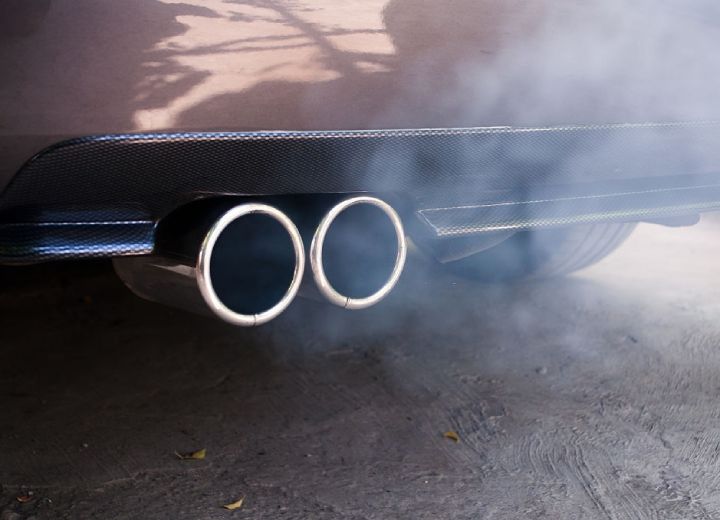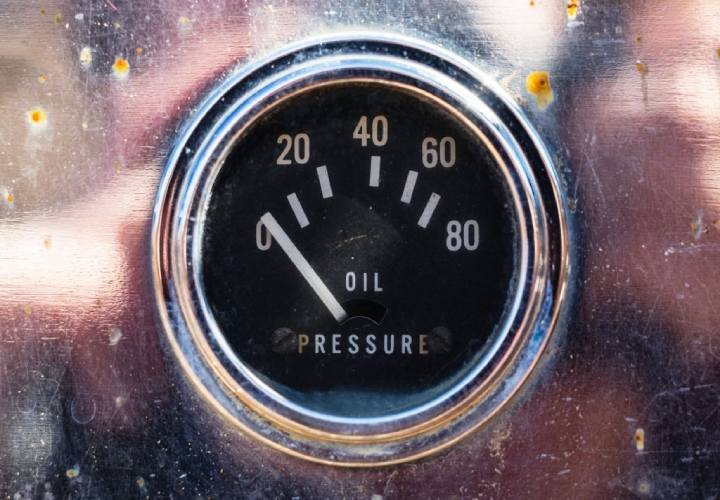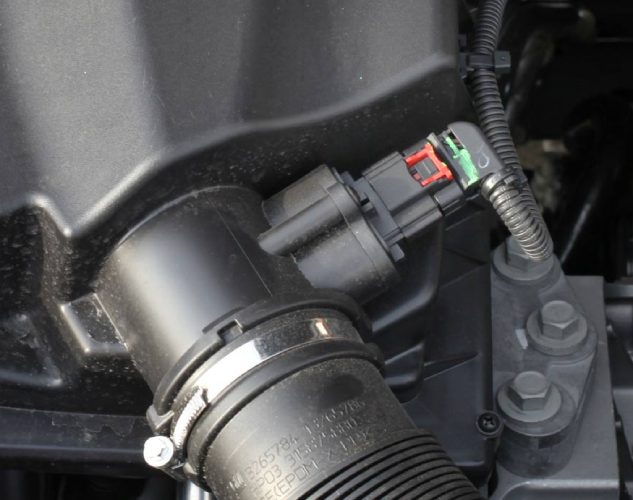Did the oil warning light come on while driving and not sure what to do? It most likely indicated that you need an engine oil top off. However, it is not always easy to find the right oil for your engine.
This article will discuss the possible consequences of mixing 5W20 and 5W30 oil, when should you do it, and in what ratios.

Here Is What You Need to Know When Mixing 5w20 and 5w30 Oil
Yes, you can mix 5W20 and 5W30 oil. However, your engine MUST support it. Both oils should be of the same brand to prevent engine damage and should also be of a similar API service level.
Although if you mix both oils, you’re likely to get no visible results; hence if the main purpose of mixing both oils is to increase your engine’s performance or improve mileage, you might end up getting disappointed.
What Happens When You Mix Them?
To properly understand what takes place in the engine when both oils are mixed, it’d be essential to understand both oils.
The format of the multi-grade oil as laid down by SAE (Society of Automotive Engineers), the letter W indicates that both multi-grade oils are suitable for winter, thus are suitable for low temperatures.
The number before the letter indicates the viscosity below 0°C, while the number after the letter indicates the viscosity at 100°C.

The 5W30 multi-grade oil is more suitable for high temperatures due to its higher viscosity, thus being used during summer and in tropical regions.
However, this does not nullify the use of the oil in cold temperatures. The 5W20 oil performs better in cold temperatures, though.
So what will happen if your mix both oils together? Both oils being of different viscosity and additive components, will not entirely mix to form a single oil mixture.
If you mix both oils for emergency use, your engine might not be immediately affected.
Still, if you use a mix of both oils in an incompatible engine, it could lead to severe engine damage over time, such as overheating, sludge formation, oil leaks, and deposits in the engine.
Hence it is recommended that if you have to use incompatible oil in an emergency, you should flush the oil and refill using the right engine oil.
What Ratios Can You Mix?
Mixing both oils might be safe for your engine, but mechanics still discourage it.
However, if you need to top off oil in a 5W30 engine containing 5W30 oil with 5W20 oil in emergencies, the higher proportion of oil used should lean towards the heavier oil (5W30 oil), and the lesser proportion should be for the thinner oil (5W20 oil).
For instance, you could go for two parts, 5W30 oil and one part 5W20 oil, in a 5W30 engine and vice versa.
If your engine supports mixing both oils, you should check the owner’s manual to ensure you use the right ratio.
Can You Use 5w20 Instead Of 5w30?
5W20 oil has lesser viscosity hence might not be the best fit for a 5W30 engine. This is because the 5W30 engine is better suited for more viscous oils, which would lubricate the engine during high temperatures.
The 5W20 oil, on the other hand, would be too thin to properly coat the components of the engine against friction; hence wear and tear might occur over time.
The oil would not properly separate the engine parts as the barrier formed would be too thin.
The use of 5W20 oil in a 5W30 engine should only occur if the engine is compatible with a mix of both oils.
Then in such cases, the oils should be mixed for use, and the 5W20 oil should not be used singly in the engine.
Can You Use 5w30 Instead Of 5w20?
The use of 5W30 oil in a 5W20 engine might not be the wise choice because the oil has a higher viscosity and would be too thick for the components of the 5W20 engine, which requires a thinner barrier.
The engine components will not get enough oil coating as the oil would be too thick to flow through and might result in overheating, wear and tear, and oil starvation.
The engine parts would also face more resistance while moving against one another.
A 5W30 oil might be safe in 5W20 engines when mixed with 5W20 oil.
What Are the Main Differences Between 5w30 and 5w20?
5W20 oil operates at a lower temperature when compared with 5W30 oil. 5W30 oil still operates at low temperature but not as low as 5W20 oil.
Although it cannot operate at a much lower temperature, it can operate at a higher temperature.
At lower temperatures, 5W30 might be able to function to an extent but not as much as 5W20 oil due to its higher viscosity which affects its penetrating ability and might lead to oil deprivation of some of the engine’s components.
The 5W20 oil, on the other hand, is capable of coating the fine parts with a thin barrier down to the deepest parts of the engine; thus, no part of the engine is deprived of oil.
At higher temperatures, 5W20 oil is too thin to coat the engine’s components properly, leading to premature wear and tear.
The 5W30 oil, on the other hand, can properly lubricate the parts of the engine and prevent them from friction. Heat makes the engine oil get more watery.
This will favor the 5W30 oil but will be a huge disadvantage to the 5W20 oil, which will lose its ability to create a decent barrier to protect the engine parts.
At normal operating temperature, 5W20 is the better choice for fuel economy. Less oil is used since it provides a thinner barrier for engine parts lubrication.
This might not seem to be a lot at first, but it adds up over time and help save up on fuel.
Conclusion
Mixing both oils in your car can lead to a nullified warranty if it leads to engine problems causing some hefty bills.
Engines that react to incompatible oils might end up with inefficient internal combustion and compromised durability.
Unless in an emergency, multi-grade engine oils should not be mixed as there is no specific benefit in it for your car, but a load of damages to your engine if your engine is not compatible.
References:
My name is Jeffrey Williams and I have been a car mechanic for over 35 years. I am currently working NYC Auto Repair Shop, in New York City and recently developed a strong passion about blogging. I decided to put together this blog where I will try and answer the most commonly asked questions I get on a daily basis from my customers.








